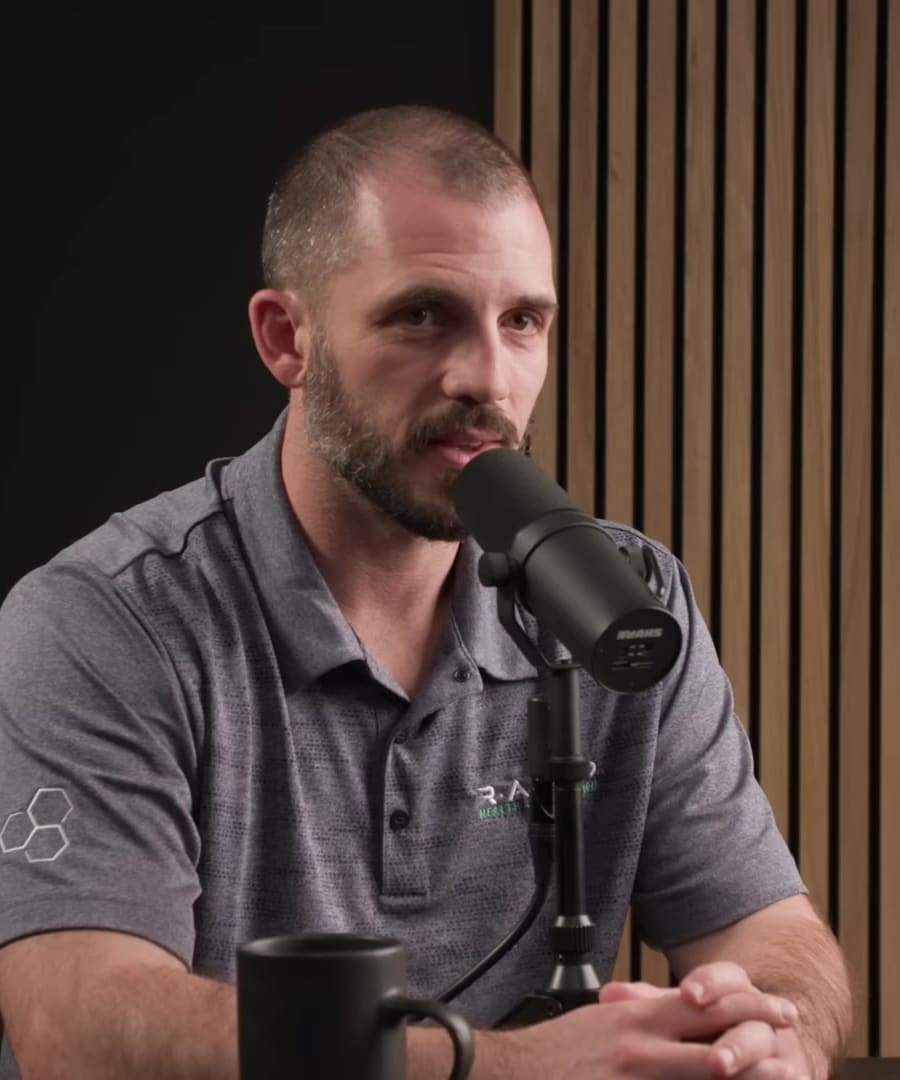What protocols are recommended for improving sleep?
Sources:
To improve sleep, recommends a variety of protocols which include the following:
-
Behavioral Techniques: Employ the Reverie app for sleep hypnosis, which can benefit users in falling asleep quickly, staying asleep, and even re-falling asleep if they wake up in the middle of the night. The hypnosis protocol from the Reverie app is an example of a non-sleep deep rest (NSDR) protocol 1.
-
Parenting and Sleep: Parents, particularly those who are mapping their sleep to a baby's schedule, should aim for NSDR protocols to maintain autonomic nervous system regulation, even if sleep is disrupted. The concept is to stay calm and avoid being alert when the parent would ideally be sleeping. Additionally, snippets of polyphasic sleep throughout the day can help. Parents are also advised to get morning and evening sunlight to help regulate their circadian rhythm 2.
-
Non-Sleep Deep Rest (NSDR) Protocols: These include clinically tested free hypnosis for anxiety, as well as protocols for deep rest such as yoga nidra. NSDR protocols can be beneficial to fall back asleep if you wake up in the middle of the night, or even during the day to help the nervous system relax 3.
-
Injury Recovery Sleep Tips: For those recovering from injuries, aiming for eight hours of sleep or at least eight hours of immobility at night is essential. NSDR protocols can aid in recovery by providing deep rest if sleep is unattainable. Following these protocols can be highly beneficial for Glymphatics clearance and tissue repair 4.
-
General Sleep Optimization: Intense exercise can affect sleep quality; hence, timing your workouts appropriately and ensuring you’re not overloading on exercise intensity is advised for better sleep. Morning and evening sunlight exposure can help regulate your body's circadian rhythm, which improves sleep regularity. NSDR as a general tool applies here as well, not only for those who might be injured or are parents 5.
-
Sleep Strategies for Children: To avoid waking up in the middle of ultradian cycles, aim for batches of sleep that match 90-minute cycles, possibly in the form of 90, 180, or 270 minutes. When sleep is fragmented, maintaining regular exposure to sunlight and avoiding intensities of hot or cold temperatures can help in stabilizing the circadian timing 6.
-
Access to NSDR Protocols: These can be accessed online, including a 10-minute NSDR script read by himself, which offers guidance for relaxation, is available on YouTube, and can be utilized anytime, especially if sleep was insufficient the night before 7.
It is important to note that these tools should be used in conjunction with any individual needs or medical advice, and not as a substitute for professional healthcare support.
RELATED QUESTIONS-
What are effective evening routine protocols for better sleep?
Sources:
To foster better sleep through evening routines, recommends several protocols that can be easily incorporated:
-
Afternoon Light Exposure: Step outside in the afternoon for 20-30 minutes to get natural light. This can help align your circadian rhythm by reducing your eyes' sensitivity to light later in the evening, which can aid in sleep 1.
-
Evening Light: Try to get some sunlight before it sets, even if it's only for 5-10 minutes. Acquiring sunlight in your eyes during the late afternoon adjusts the sensitivity of retina neurons, protecting against the negative effects of artificial lights in the evening 2.
-
Avoid Bright Light at Night: Minimize exposure to bright and especially overhead lights from 10:00 p.m. to 4:00 a.m. This will help facilitate falling asleep and maintain good sleep throughout the night 3.
-
NSDR Protocols: Implement non-sleep deep rest (NSDR) protocols if needed, such as clinically tested free hypnosis for sleep from Reverie Health 4. These tools help in turning off thoughts and promoting a calm state conducive to sleep.
-
Red Light in the Evening: Utilizing red lights in the evening can help with the transition to sleep due to their lower impact on melatonin suppression 5.
-
Meal and Social Engagement Timing: Aligning your evening routine with local meal schedules and social activities can help adjust your circadian rhythm to local time, particularly when traveling 5.
-
Sleep Environment: Reserve your bed strictly for sleeping and sexual activity to help condition your brain to associate the bed with sleep; this can reduce insomnia and improve sleep onset 6.
Incorporating such practices can significantly contribute to improved sleep quality. It's important to customize these guidelines to fit personal routines and needs.
RELATED QUESTIONS-
What protocols are recommended for improving sleep?
- RELATED QUESTIONS
What are effective evening routine protocols for better sleep?
- RELATED QUESTIONS











